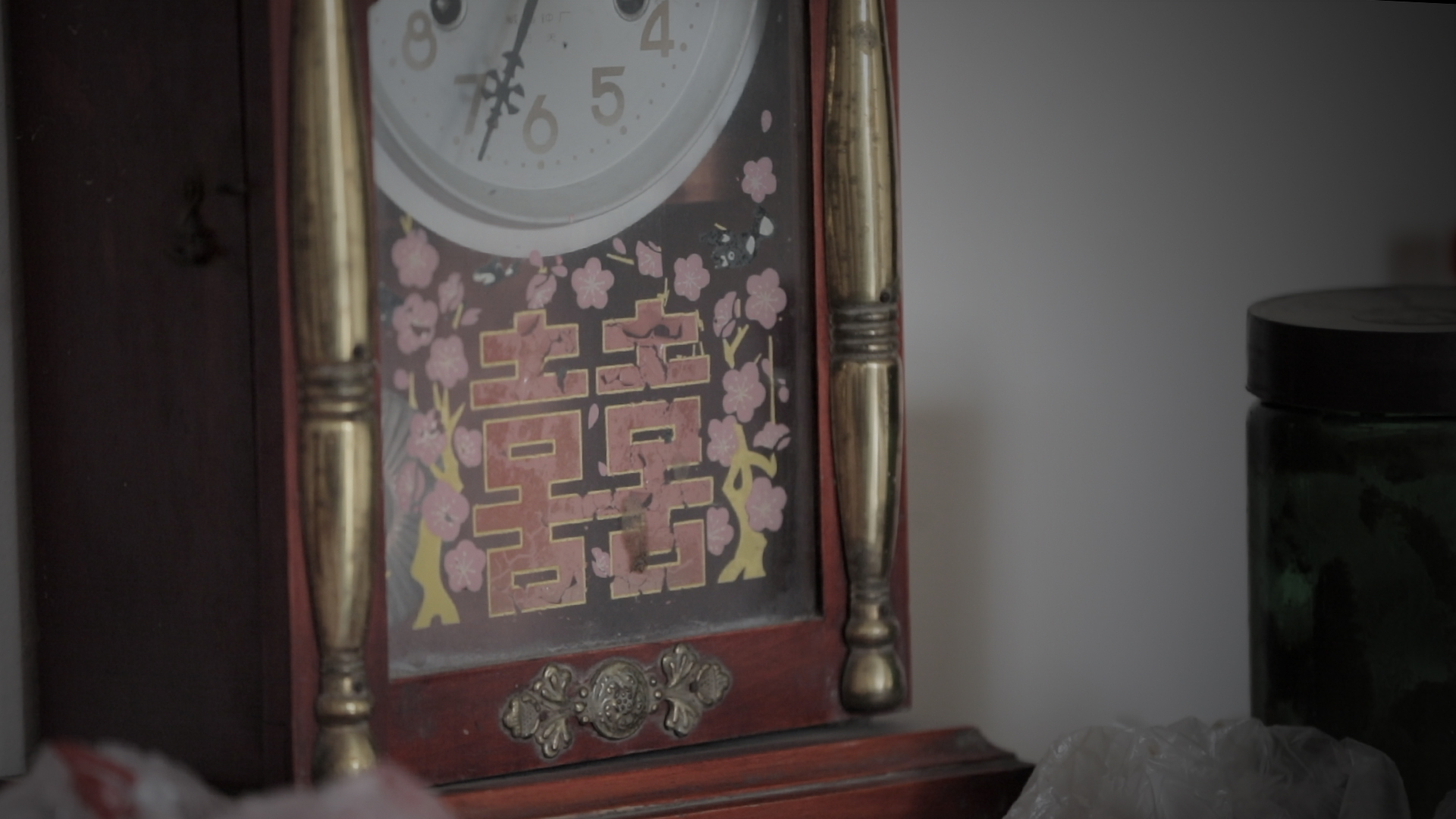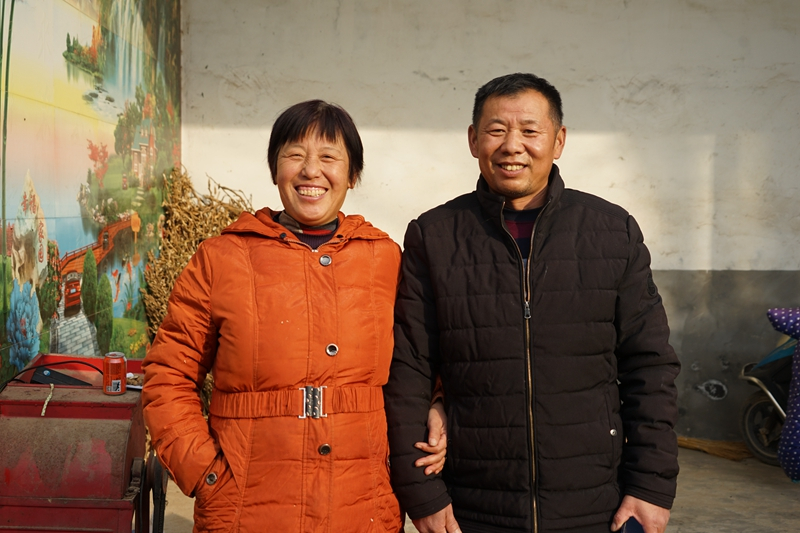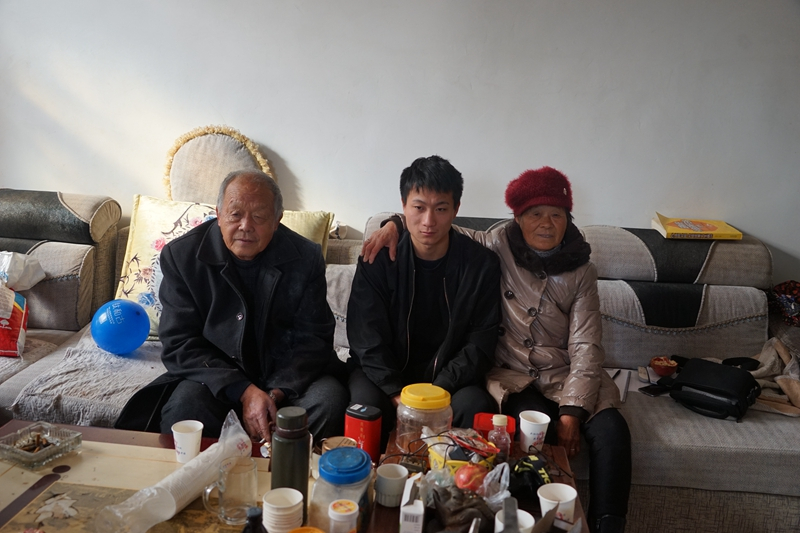03:48

Like many struggling to get by in the 1990s, Wang Xiuyue sold blood for money. In 2002, her eldest son was admitted to a hospital with a mysterious disease. He was diagnosed with AIDS, and died within a month.
"The money earned from my blood couldn't save my 11-year-old boy. Instead, my blood led to his death and killed him," recalled a tearful Wang, a resident of Liuzhuang Village in Shangcai County of Henan Province.
In the 1990s, poverty-ridden villagers in Henan Province frequently sold blood to earn a quick buck. But this blood rush led to the AIDS epidemic, infecting 63,940 people in the province, according to China Daily.
In the AIDS villages in Shangcai County, more than 700 people were found to be HIV-positive, killing nearly 200 of them over the years.
Apart from claiming lives, the virus also tore apart the social fabric in these villages. Marriages fell apart and frequent deaths left behind a large number of motherless, fatherless or orphaned children.
It takes a village to end the stigma
For Wang, the turmoil was not nearly over. A few days before she cremated her son, she was also tested as HIV-positive. "The villagers started to treat me like a plague, and my husband, fearing of the infection, abandoned me," she said.
Her husband, Liu Weiqiang, left to work in a factory in Guangzhou, leaving his ailing wife and only child to fend for themselves.
Enraged over the betrayal, a frail Wang boarded the train to find her husband, and confronted him face-to-face in front of the factory. "You can't flee. Be a man and divorce me instead of running away," she yelled.
Moved by his wife's conviction, Liu said: "I dared to choose love over the virus."

Wang Xiuyue and her husband Liu Weiqiang. /Photo by CGTN's Alok Gupta
Wang Xiuyue and her husband Liu Weiqiang. /Photo by CGTN's Alok Gupta
In the last few decades, such stories have inspired other couples living with HIV. Their attitudes toward the virus evolved, and HIV-carriers like Wang are no longer a social pariah in the village but inspiring figures who support and provide sound counsel to others.
"Villagers have stopped fearing the virus, instead they patiently seek the medication and support each other to adjust their lifestyle," said Xu Jianqiu, the village doctor.
In 2003, when Xu Zhanling found out his wife is HIV-positive, he rushed to the local hospital seeking anti-retroviral (ART) therapy. "In the last two decades, I have seen families not only surviving with the disease but also living happily," Xu added.
Today, the couple has two healthy sons.
AIDS villages wait for brides and grooms
Nearly three decades after these AIDS villages received government support, children born with HIV have matured into adults.
Twenty-three-year-old Mao Mao, an HIV-positive youth from the nearby Guotun Village, shyly confessed that he is dating a girl. His mother died of AIDS in 1997. His father, a bus driver, is still reeling from the guilt of passing on the infection to his son.

Mao Mao and his grandparents. /Photo by CGTN's Alok Gupta
Mao Mao and his grandparents. /Photo by CGTN's Alok Gupta
Raised by his grandparents, Mao Mao refuses to introduce his girlfriend to anyone. He dated a girl from Chongqing previously. Madly in love, they planned for a future together, but that was thwarted by his grandparents.
"I feared, my grandson would have infected a girl. I asked him to abandon the girl," said Mao Mao's grandfather Wu Zhongren. The virus divided them and his grandson started dating an HIV-positive girl.
But Mao's grandmother Wang Nidan objects her husband's viewpoint. She insists that "my grandson should marry for love" – and the argument between the two continues.
Meanwhile, Wang Xiuyue and Liu Weiqiang gave birth to two daughters after their reconciliation. Both of them in their early teens are studying in a middle school. "Even if my girls find an HIV groom, I won't have any objection," Wang said, while playing a game of mahjong with her neighbors.
The women playing the game nodded in unison and remarked love is forever; medicine can take care of the virus.